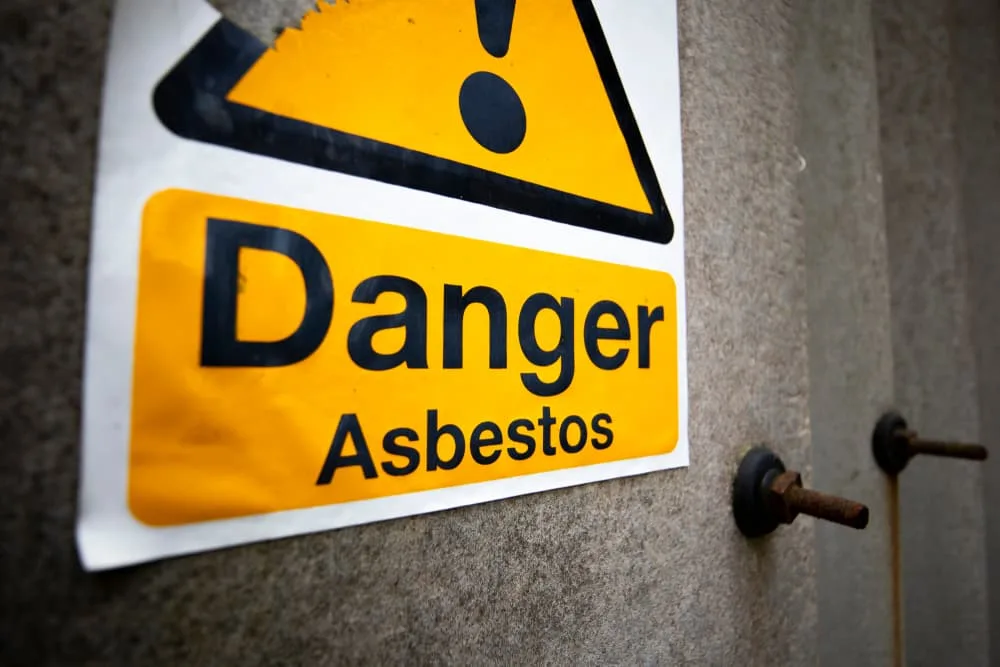The risk of developing mesothelioma from asbestos exposure at work depends on the duration and intensity of exposure, the type of asbestos fibers encountered, and individual susceptibility. For decades, insulation and fire protection products contained asbestos. People who worked in industries manufacturing asbestos products or installing asbestos-containing products were at risk of direct exposure to cancer-causing asbestos fibers.
It typically takes a long time between asbestos exposure and the development of mesothelioma, asbestos-related lung cancer, and other asbestos-related diseases. Sometimes, workers don’t connect their illness to their asbestos exposure at work. But the primary cause of mesothelioma is asbestos exposure.
If you have recently been diagnosed with mesothelioma, talk to an experienced Chicago mesothelioma lawyer from Vogelzang Law about whether you may have a claim.
Our lawyers have two decades of experience handling mesothelioma cases connected to asbestos exposure at work. An experienced attorney can help you establish a link between your mesothelioma and the source of asbestos exposure, and from there navigate the complicated mesothelioma claims process.
What Is Mesothelioma?

Mesothelioma is a rare and lethal cancer type that targets the thin layer of tissue surrounding organs, known as the mesothelial cells. Mesothelioma is primarily caused by exposure to asbestos fibers.
Malignant mesothelioma leads to the thickening of this lining, potentially spreading to negatively impact the organ in question and neighboring organs.
Mesothelioma can impact different areas of the body, including the lungs (pleural mesothelioma), the abdomen (peritoneal mesothelioma), or the heart (pericardial mesothelioma). Rarest is tunica vaginalis mesothelioma, which affects the lining of the testicles.

What Types of Jobs are Associated with Asbestos Exposure at Work?
Many types of jobs and industries have historically been associated with potential asbestos exposure due to the widespread use of asbestos-containing materials in the past. While asbestos use has significantly declined in recent decades, individuals in certain occupations may still encounter asbestos-containing materials in older buildings or during specific tasks.
Occupations associated with asbestos exposure include:
- Construction workers: This includes carpenters, plumbers, electricians, and laborers who may have encountered asbestos in building materials, insulation, or cement pipe coverings. Risk is particularly high during demolition or renovation projects, where crushed or broken asbestos-containing materials released microscopic asbestos fibers that workers inhaled or ingested.
- Shipyard workers: Asbestos was commonly used in ship construction for insulation and fireproofing, putting shipyard workers at risk. Navy veterans who worked in shipbuilding or who worked to maintain and repair boilers, pipes, and other parts of the ship with asbestos insulation also have a high risk of mesothelioma from asbestos exposure at work.
- Industrial workers: Those in industries like manufacturing, power plants, and chemical plants may have used asbestos in machinery, equipment, and building materials.
- Auto mechanics: Brake pads, clutches, and gaskets in older vehicles may contain asbestos.
- Insulation workers: Those who installed or removed insulation materials, particularly in older buildings, faced a high risk of asbestos exposure.
- Firefighters: Firefighters responding to fires in buildings that contain asbestos-containing materials may suffer asbestos exposure.
- Miners: Asbestos was mined and extracted, putting miners at risk of direct exposure.
- HVAC technicians: Heating, ventilation, and air conditioning systems may contain asbestos.
- Teachers and school maintenance staff: Older school buildings used asbestos products, putting teachers and maintenance workers at risk.
- Healthcare workers: Older healthcare facilities used asbestos in building materials or equipment.
- Oil refinery workers: Refineries used asbestos in insulation and fireproofing.
- Railroad workers: Trains and railroad infrastructure used asbestos.
- Military personnel: In addition to veterans who worked in shipbuilding and maintenance, other military personnel were exposed to asbestos in barracks.
Many of these jobs had a higher risk of asbestos exposure in the past. Regulations and safety measures reduce such exposure. However, individuals in these professions who worked with or around asbestos-containing materials in the past may still develop asbestos-related diseases, such as mesothelioma, even decades later.
If you or a loved one were diagnosed with mesothelioma, consult a healthcare professional for evaluation and seek legal advice if you develop asbestos-related health issues. An experienced mesothelioma lawyer can trace the likely sources of asbestos exposure at work to help build a claim against the parties responsible for your illness.
Who is Liable for Mesothelioma Resulting from Exposure to Asbestos at Work?
Liability for mesothelioma resulting from exposure to asbestos at work can involve various parties, depending on the circumstances. An experienced mesothelioma lawyer can uncover liability related to occupational exposure to asbestos.
Liable parties may include:
- Employers have a duty to provide a safe working environment. If an employer fails to protect employees from asbestos exposure by not providing proper training, and safety equipment, or by not following asbestos regulations, you can hold them liable for your mesothelioma case.
- Manufacturers of asbestos-containing products can be held liable under product liability laws if their products are found to be defective or unreasonably dangerous. This liability can extend to both the manufacturers of asbestos materials and the companies that use these materials in their products or buildings.
- Construction companies, contractors, and subcontractors may be held liable if they used asbestos-containing materials without adequate precautions or if they failed to inform workers of asbestos hazards.
- Property owners may be liable if they knew or should have known about the presence of asbestos-containing materials in their buildings and failed to take proper steps to protect workers and occupants.
- Companies specializing in asbestos removal and abatement must follow strict safety procedures when handling asbestos-containing materials. Failure to do so can result in liability.
- Companies involved in the supply chain of asbestos-containing products can bear liability if they did not provide adequate warnings about the dangers of asbestos exposure.
Liability in mesothelioma cases often involves multiple parties. Laws and regulations governing asbestos exposure and liability vary by jurisdiction and may have changed over time.
Many asbestos manufacturers faced extensive legal liability and filed for bankruptcy. As a result, asbestos bankruptcy trusts compensate victims. Mesothelioma victims can seek compensation from these trust funds.
Individuals diagnosed with mesothelioma must consult an attorney who specializes in asbestos-related litigation to assess their specific case and seek compensation for medical expenses, pain and suffering, and other damages.
The legal team at Vogelzang Law has more than 20 years of experience in working with mesothelioma patients and their families on claims involving asbestos exposure at work.
If You Developed Mesothelioma After Exposure to Asbestos in Construction, Contact Vogelzang Law Today
If you’ve been diagnosed with mesothelioma due to exposure to asbestos in construction, we take your diagnosis seriously. At Vogelzang Law, the skilled Chicago asbestos & mesothelioma attorneys have helped over 250 clients and secured more than $200 million in verdicts and settlements.
We will partner with you every step of the way, from consultation to potential litigation, to ensure your case is in the best hands possible. Our primary offices are located in Chicago and Grand Rapids, Michigan, and we handle mesothelioma claims nationwide.
Call us at (312) 466-1669 or (616) 319-1874 or fill out the contact form on our website for your free consultation. There is no cost for the consultation or to file your lawsuit.




